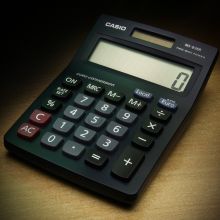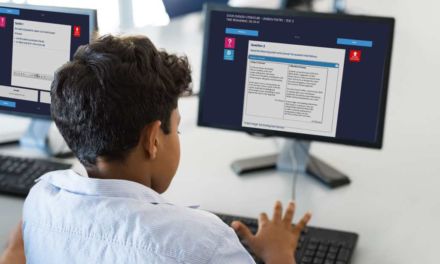The traditionally taught methods of maths are being challenged by those who feel that the future of the subject should be less about the mechanics of maths and more about the concept of the subject and the practical uses. There are calls for maths to become more about everyday use than currently taught and less and less about the theory behind how the maths works.
In essence, the thoughts are that learning about what algebra is should be replaced completely in the future with how it’s used in everyday scenarios.
There’s also discussion regarding the role of technology in maths and the proposal of the use of computers to solve maths problems rather than the traditional way of the pupil arriving at the answer themselves.
Calculators and computers
A recent research study by Conrad Wolfram looked at the way maths teaching takes place and his results produced divided opinion. He feels that whilst coding is to being at primary level, there’s still the ban on a calculator being used to work out an answer which he feels is a hypocrisy and he has strong views that computers should be the way forward for taking maths exams in that they provide the answers through pupil research.
To put his thoughts into reality, this would mean that problem-solving would no longer be through text books and work sheets, but would mean the pupil dedicating their maths lesson to using the computer as a tool to answer the problems for them and for this then to lead to a similar scenario in an exam situation.
How the concept is being received in other countries
There are now radical shift-changes in a number of other countries in light of the model suggested by Wolfram. In Estonia for example, they have completely rewritten their maths curriculum to base it around computer use. Example questions could be ‘will it rain on Thursday’ and the pupil will need to access weather related data and relevant software to give a forecast answer rather than one which could be traditionally seen as right or wrong. Maths is being used, but not the theory behind it and the hope is that the fear of maths held by many can be replaced with it being used in such relevant environments that pupils who say they ‘can’t do maths’ don’t even realise they are using the elements of the subject in practical situations as the idea of maths being far away from relevant day to day application is removed.
New concepts and the increase in employability and life skills
Removing the theory of maths and replacing it with computerised problem-solving could have a real ring of relevance to it. Numeracy standards need to rise across the UK and the lack of underpinning knowledge of theoretical maths is often the cause of low achievement rates.
Equipping these same pupils with maths which removes the need for working out statistical data on a piece of paper and replaces it with understandable knowledge and skill will enhance their life chances and fulfil the needs of society.
Whilst removing the much-held fear of a subject is always of great importance, whether the calls for the use of computers instead of workbooks will ever fully come to fruition is up for debate.
Whatever the future for maths though, the key to success and achievement will always come down to relevance in life and daily application so if the computer is the answer, then perhaps the coming years will see the work of Wolfram come to fruition in the UK in the same way it is in other nations.










